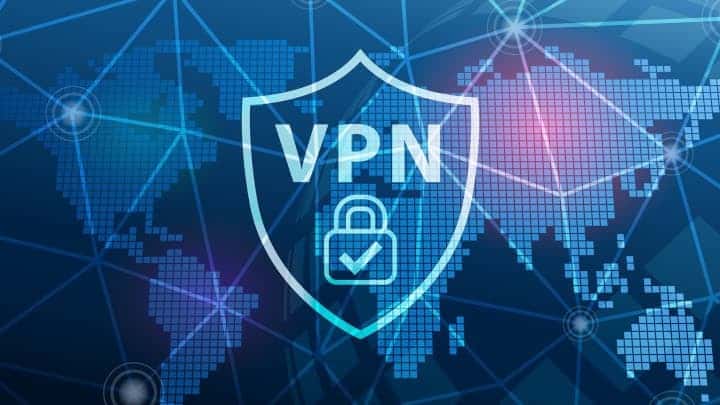Privacy and security on the internet have become a big concern in recent years. Plenty, if not all of our personal information, is stored on our smartphones and computers. But unless you’ve been living under a rock, you’ve probably heard of VPNs a few times before and know what they can do.
Surely you’ve heard YouTubers ramble about how a VPN unlocks access to geographically restricted streaming content before, but it can do a lot more. As privacy-concerned users, we also believe every user should switch to a VPN for several reasons, some of which we’ll discuss in this article.
What does a VPN do?
Before we discuss the advantages of using a VPN, let us give you an idea of what it actually is. VPN, an abbreviation for Virtual Private Network, is a network tool that allows users to secure their browsing sessions, anonymize their locations, get past the geo-restrictions, and more.
We’ll discuss some of the crucial benefits later on. For now, go through the following sections to learn more about VPNs in detail.
How does a VPN work?
The general concept of VPN is relatively straightforward. When you enable VPN on your device, it’ll establish a virtual point-to-point connection to an anonymous proxy server hosted by your VPN service. Once connected, all your network traffic will reroute to the web from the server’s end.
It means sites and trackers won’t be able to associate your browsing activities with you, as all of it will seem to be coming from the VPN server instead. It’ll also happen the other way around since the incoming network packets go through the VPN server before reaching your device.
Is a VPN connection encrypted?
Yes, encryption is a VPN’s key selling point most of the time, used to make the connection with your VPN provider more secure. Commercial VPN services also advertise having a zero-log policy, meaning they store no data on your browsing activities, location, or any other personally identifiable information.
Neither encryption nor a no-log policy is a fundamental VPN feature. But we, privacy-concerned users, consider them as a welcoming addition. These are the most vital features to look for if you want the utmost privacy. “Free” VPN services usually don’t offer that.
Can we use VPN with more than one device?
Most premium VPN providers offer simultaneous connections for multiple devices. Some providers limit the number of VPN connections, while others don’t. For instance, SurfShark allows for an unlimited number of devices on a single subscription. ExpressVPN, on the other hand, only allows for five simultaneous connections, at least at the time of writing.
However, none of this matters as it’s possible to configure a VPN on supported Wi-Fi routers. By setting up a VPN to work on a router level, you can connect all your devices to a secure VPN network. It includes devices that don’t natively support VPN clients.
What about VPN pricing?
The pricing is another important aspect of a VPN service. Although a few VPN providers claim to offer “free” services, they can be painfully slow and have less security. Plus, they generally put bandwidth restrictions, so you’ll have to pay eventually for unlimited usage in one way or another.
Therefore, if you want the best VPN experience, you’ll need a subscription. The pricing varies depending on the provider and their tiered model, but a monthly plan would cost you around $10-$15. You can also get an effective discount by opting for an annual plan instead.
What are the benefits of using a VPN?
While many consider people to use VPNs for only nefarious activities, it definitely isn’t the case for the vast percentage of users. People connect their devices to a virtual private network because of the increased privacy and security.
There are several advantages and benefits of using a VPN, which we’ll now discuss in detail below.
Anonymity and safety
The first and most crucial benefits of using a VPN are to make yourself anonymous online and safeguard your personal credentials. Chances are your ISP or internet service provider keeps track of all your browsing activities and sells the information to third-party advertisers. Browsing in incognito mode won’t work in this case.
In this day and age where we have public Wi-Fi access points everywhere, it’s actually easy for anyone to pry on the public network traffic and steal user information. So, whether you’re getting important work done or making payments over a coffee shop or university campus Wi-Fi, you can make it nearly impossible for malicious artists to snoop on your online activities with a VPN.
Bypassing firewall
We believe the internet is a free-speech environment and the land of information, though some organizations and governments may disagree. In such circumstances, VPNs can help you freely access the web, bypassing the firewall.
However, it’s worth noting the legality of VPNs in certain countries, especially in places with authoritarian tendencies. Thus, we strongly recommend whether it’s legal to use a VPN where you are before making a move.
Getting past geo-restrictions
Of course, this is another popular advantage of using VPNs. Since you can choose the server location, it’s pretty easy to access a site or service that’s only limited to a specific region or country. For example, if you live in Germany and can’t access an American-exclusive video streaming service, you can simply connect to a US server and gain access to it.
It comes in handy if your educational institution or workplace doesn’t allow foreign connections or when you’re on vacation. Obviously, the ethical implication of binging shows during work or school is a whole other debate, but you get the point.
However, some streaming services consider using virtual private networks as breaking their terms of service, so you may get your account terminated. Think twice before attempting to access the foreign streaming libraries with your main account.
Avoid ISP throttling
One of the cons of using VPNs is that they slow down your network connection, sometimes by slightly and other times by a significant margin. Then again, it may help in some instances, e.g., if your internet service provider deliberately throttles your internet speed during downloading or streaming.
Since your ISP won’t know what you’re doing on a VPN connection, it won’t intentionally be able to limit your bandwidth.
Save Money
It’s no secret that online services have varying pricing models targeting different markets. Brands might have special deals for particular locations, and you can take advantage of it to save some money by connecting to the corresponding VPN server.
Are there any drawbacks to using a VPN?
As you may have noticed, there are plenty of benefits to using a VPN. But it isn’t without its drawbacks, a few of which you should know.
First and foremost, VPN has an impact on your internet speed. Data packets will need to jump through extra hoops between your device, network, and the remote server possibly located on the other side of the world. And as a consequence, VPN connection speeds will be slower than your current internet speed. The drop can range from minimal to significant depending on how far the server is from your location.
Your device can also suddenly lose connection to the VPN server without you even realizing that your online activity is no longer anonymized. Thankfully, most VPN apps/clients feature a “kill switch” that auto-disconnects the device from the internet until the VPN connection is re-established. It prevents any sensitive data from accidentally being exposed on the unsecured web.
Furthermore, the use of VPNs is deemed illegal in some countries where the idea of internet freedom or online anonymity is unwelcoming. Some VPN services do work in such places, though using them poses the high risk of receiving harsh punishments that most people won’t take.
Lastly, sites and services nowadays use advanced flagging systems to detect VPN users and block their access. Netflix and Hulu, two of the biggest names in the on-demand streaming business, use such anti-VPN technologies.
Make the switch to VPN today.
Assuming you’ve made it this far, you’ve likely decided to incorporate VPN into your internet toolbox. But before reaching out for your wallet to pay for any VPN service, please do some research to find out the good VPNs. We’d strongly encourage you to stay away from providers to claim to offer “free” VPN services, most of which are infamous for collecting and selling user data to third parties without consent.
Though there are a lot of safe and private VPNs out there, be sure to compare them by their features, device compatibility, available server locations, connection speeds, peer-to-peer capabilities, customer support, and pricing first before making the ultimate choice.

Aftab Hussain is a versatile journalist who covers a wide range of news topics with depth and precision. His commitment to delivering unbiased reporting ensures that readers stay well-informed about the most significant events and stories shaping India and the world.

